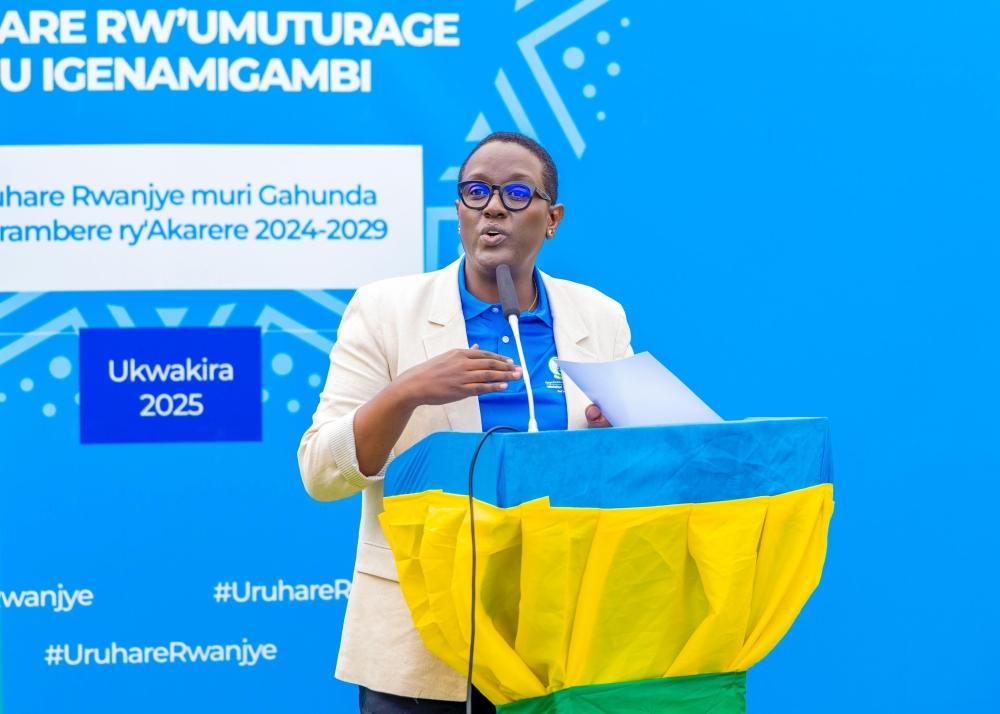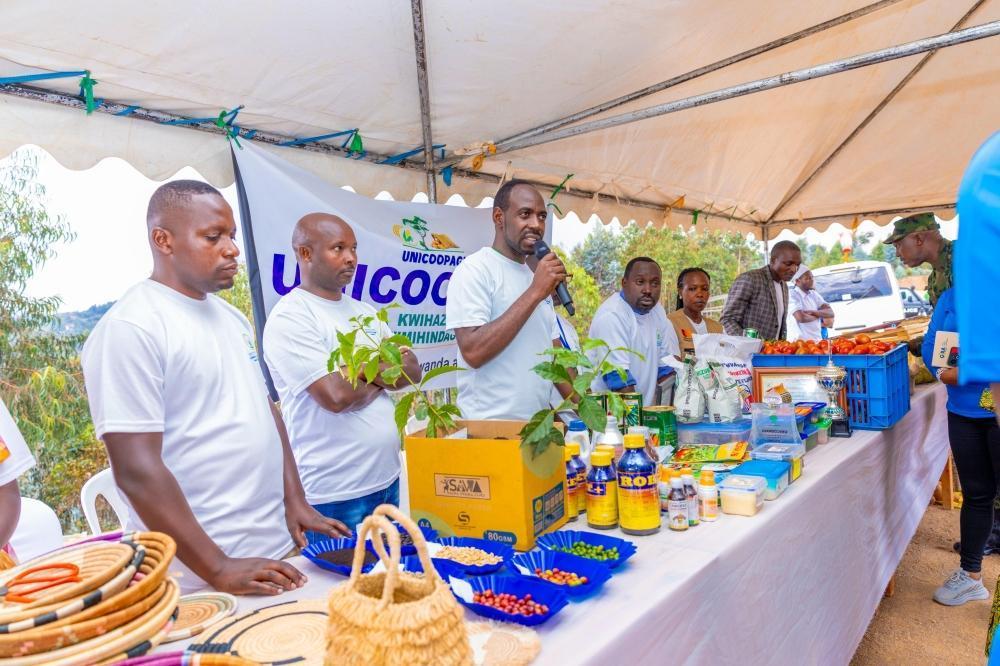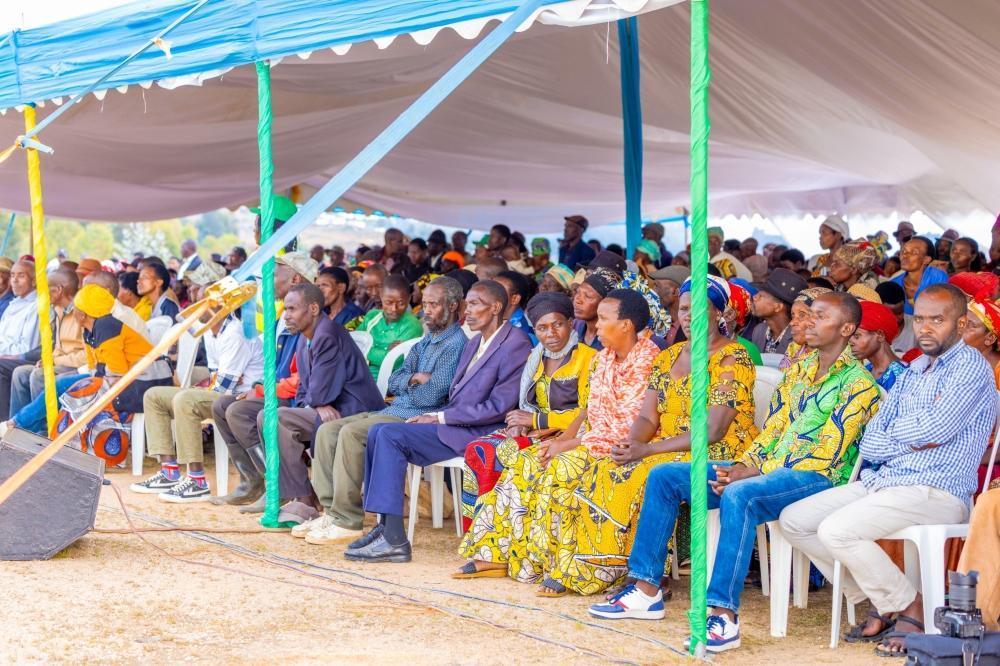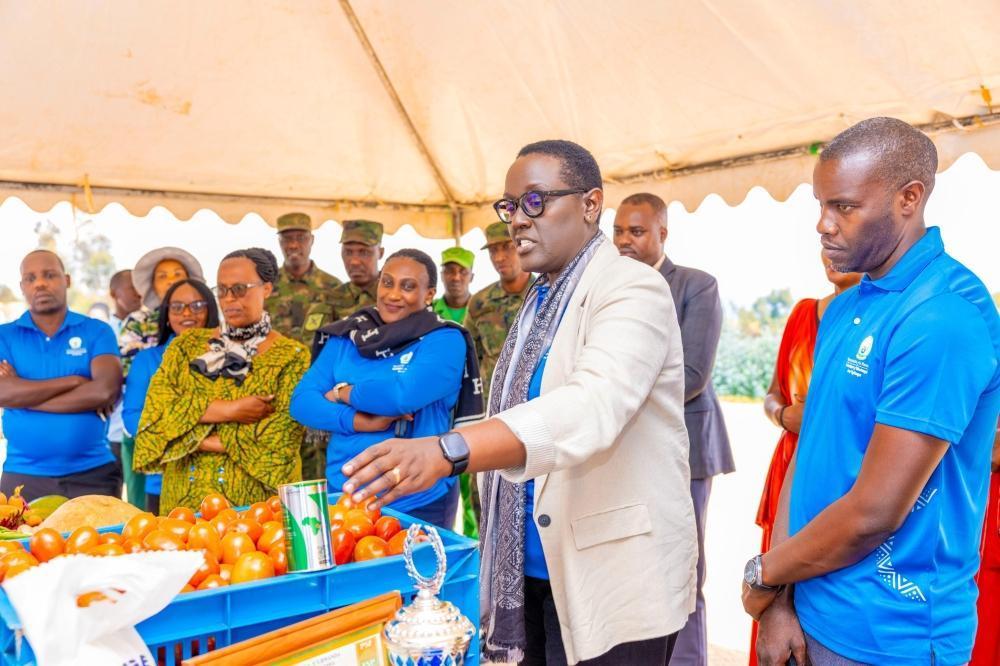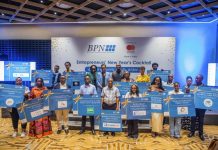Africa-Press – Rwanda. The Minister of State for Local Government Marie-Solange Kayisire has urged everyone to fully participate in the country’s development by engaging in productive work, improving agriculture, building self-reliance, and supporting planned programs, which will help Rwanda attain a resilient economy, starting with their own personal development.
Kayisire said this while presiding over the launch of the Citizen Participation in Planning and Budgeting for the 2026/27 fiscal year in Nyamagabe District on Tuesday, October 14.
Farmers showcase their produce at the launch.
District officials presented the highlights of the District Development Strategy (DDS 2024–2029) and discussed everyone’s role in implementing it.
UPDATE: Marie Solange Kayisire, State Minister in the Ministry of Local Government, has presided over the launch of Citizen Participation in Planning and Budgeting for the 2026/27 Fiscal Year in Nyamagabe District.
The fiscal year aims to improve service delivery from the current 78.28 to 83.7 per cent, increase citizen participation from 84 to 89 per cent and improve civil society organisations, media, and faith-based organisations (FBOs) participation from 84.2 to 90 per cent according to the ministry.
Residents follow Minister Kayisire’s remarks at the launch of the Citizen Participation in Planning and Budgeting for the 2026-27 fiscal year in Nyamagabe District on Tuesday, October 14. Courtesy
“We appreciate the contribution of citizens in implementing the National Strategy for Transformation (NST1), which concluded in 2024, especially the progress made here in Nyamagabe. We are all encouraged to continue playing an active role to achieve even greater results,” she noted.
“The government will continue to support activities that citizens cannot handle on their own, such as building roads, schools, water and electricity infrastructure, and encouraging local authorities to stay close to citizens and address the challenges that hinder their progress,” she said.
The Minister of State for Local Government Marie-Solange Kayisire visits a mini exhibition during event. Courtesy
“As citizens, you are encouraged to make the best use of these opportunities, protect public assets, and work hard to lift yourselves out of poverty so that development benefits everyone, leaving no one behind,” she added.
Officials say that involvement of citizens in identifying priorities, planning, budgeting, and monitoring developmental activities is to ensure transparency and accountability in governance, promotes ownership and sustainability, aligns services with real community needs, builds trust between citizens and the government and enhances inclusiveness in planning and budgeting.
Hildbrand Niyomwungeri, the Mayor of Nyamagabe District, said that over the past three years; 2022/23, 2024/25, and the current year 2025/26, several development priorities raised by citizens have been implemented including major progress in education, infrastructure, and agriculture.
For instance, Niyomwungeri mentioned that the District built 78 classrooms, two new schools, and two TVET wings, while also renovating three sector offices and constructing a suspension bridge at Kagusa.
Markets were built in Ryarubondo, Kigeme, and Gakoma, and the Rukarara V hydropower plant now generates 5 MW of electricity. Access to power rose from 58.8 per cent in 2023–2024 to a projected 63.3 per cent this year.
In agriculture, 813 hectares of radical terraces were developed, and the 70-hectare Mushishito marshland was rehabilitated, enabling farmers to grow crops three times a year. Major water projects now serve over 46,000 residents across Tare, Kibirizi, Gasaka, and Kitabi sectors, improving access to clean water and boosting livelihoods.
“All these projects are initiatives that originated from citizens’ proposals during past planning periods and were implemented through strong collaboration between the people and local authorities,” he noted.
Perspectives on involvement in national planning, budgeting, and implementation
Egide Ngirinshuti, a community health worker in Nyamigina Village, Tale Sector said that community-based projects are largely implemented as planned thanks to consistent mobilization under decentralization.
He added that community councils regularly discuss achievements and areas for improvement, to ensure everyone can contribute ideas on budgets and priorities to support Rwanda’s development and reduce the urge to seek opportunities abroad.
“For instance, they can access VUP loans starting from Rwf100,000 to Rwf200,000, repayable within two years at an interest rate of only 2 percent. However, repayment can also be made in a shorter period. Most beneficiaries have used the loans to invest in mushroom gardens, pig farming, and small businesses, which have yielded positive results and improved their families’ living standards,” he said.
“That is what is needed to build a resilient community. Poor citizens cannot understand government initiatives, and instead of protecting existing ones, they may end up contributing to their destruction. We are monitoring everything that has public interest,” he added.
Grace Irashoboye, 25, who studied Water Engineering, now works as a tailor at COTRIDE Company, which specialises in tailoring and employs over 20 workers. She has been sponsored by Rwanda TVET Board (RTB) to support a one-year capacity-building course for school dropouts, and she is set to graduate in a few weeks.
“We appreciate how the government involves citizens in developing a common understanding of priorities. It is us who identify our needs, which gives us the courage to implement them. As for the youth, they should stand up, express their needs, and be ready to be productive,” she said.
Governance and decentralization scores, according to the Rwanda Governance Scorecard, were 66.8 percent in 2022, rose to 70.4 percent in 2023, and 65.7 percent in 2024.
For More News And Analysis About Rwanda Follow Africa-Press

